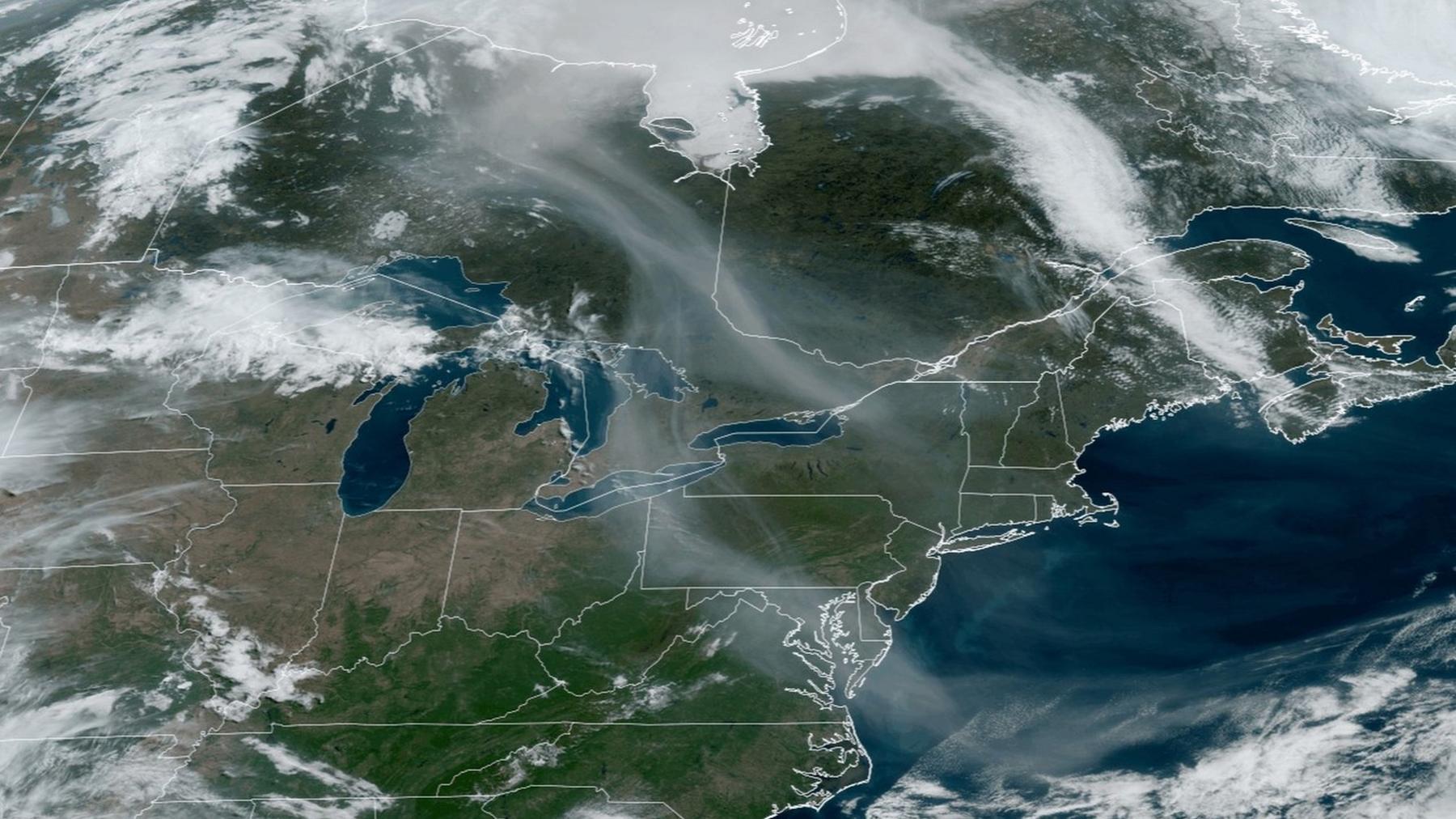Military airlifts hundreds to safety from fires in Northwest Territories
- Published
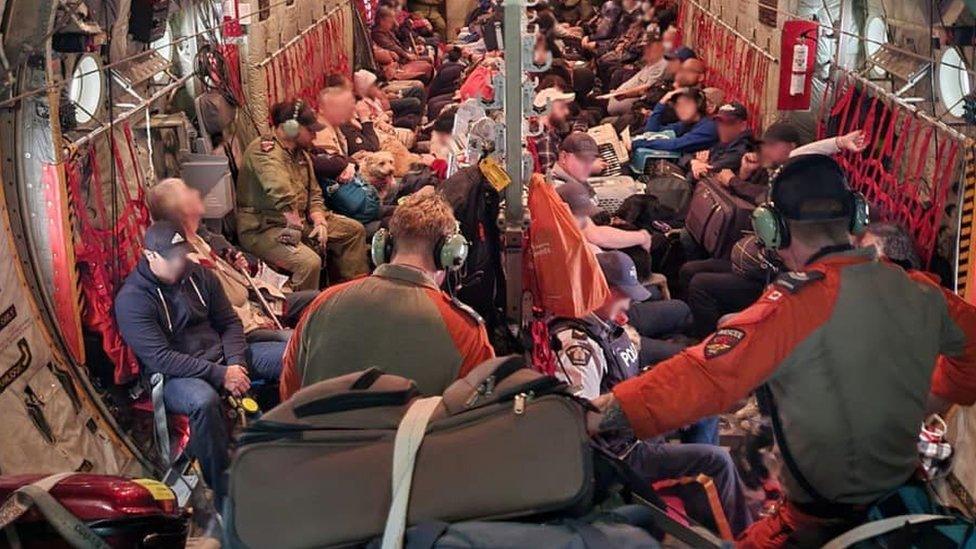
On Monday, military aircraft airlifted residents of Fort Smith to Fort McMurray and assisted the evacuation of Hay River
Michel Labine, a long-time resident of Fort Smith in Canada's Northwest Territories, has often been the one fighting wildfires or helping evacuees in his hometown.
But last weekend, the 63-year-old found himself for the first time on the other side, forced to flee as a nearby forest fire inched closer and closer to his community.
The sky was smoky that Saturday morning but had turned pitch black by noon from the fires.
"Then it broke up a bit and there was just a red, amber sky," Mr Labine told the BBC. That is when he saw fire trucks driving from home to home warning people to get out.
Mr Labine and his family were later airlifted by the military 365km (226 miles) away to Fort McMurray, Alberta. The airlift is the biggest rescue operation in the territory's history.
The Labines managed to get out with only the essentials.
"We had no luggage," Mr Labine said. "I had my bag with my medical items and that was it. We had nothing."
He is one of more than 6,500 people who have been ordered to evacuate in parts of the Northwest Territories due to 236 active wildfires in the region.
On Tuesday, the government declared a territory-wide state of emergency, while the mayor in the small town of Hay River warned people in her community that time to escape is running out.
"It is life-threatening to be here," Kandis Jameson said at a news conference, adding the fire is about 15 kilometres from the town. Ms Jameson said about 500 people have yet to evacuate.
This is Hay River's second evacuation this summer. The town also housed evacuees from Fort Smith, who were forced to flee again on Sunday.
"When they evacuated Hay River, there were over 5,000 people there," Mr Labine said. "Normally there would be 3,500, but they had a lot of people from Fort Smith."
One of those fires has destroyed nearly all of the hamlet of Enterprise, its mayor said on Tuesday, which is home to 120 people.
"I think there's seven or eight houses left and three or four businesses," Michael St Amour told the CBC., external "Between 85 and 90% of the community is gone."
Another fire is within one mile of Fort Smith, Mr Labine said.
"If the wind is in our favour then we might be saved," he said. "But if the wind shifts to the south … the town's gone."

"All we can do is pray now, and hope that the guy upstairs says 'we're going to let you go this year,'" said Mr Labine, who is now sheltering at a hotel full with other evacuees.
Canada is witnessing its worst wildfire season on record, with nearly 1,100 active fires across the country as of Tuesday, thanks to a drier than normal summer.
A total of 13.2m hectares (32.6m acres) have burned so far - roughly the size of Greece.
The Canadian government has deployed its military to the Northwest Territories to help fight the fires and coordinate evacuations.
Meanwhile, Yellowknife - the territorial capital - declared a local state of emergency on Monday night due to the "imminent threat" of wildfires. The declaration allows the city to take pre-emptive steps to respond and to prepare residents to leave at a moment's notice.
A retired renewable resources officer whose role included dispatching fire crews in his community, Mr Labine said this year's wildfire season is unlike any other he has witnessed.
The ground has been so dry this summer that walking on grass felt like stepping on broken glass, he said.
"When you stepped on it, it just crunched," Mr Labine said. "I've never seen it that dry. We've had very little rain."
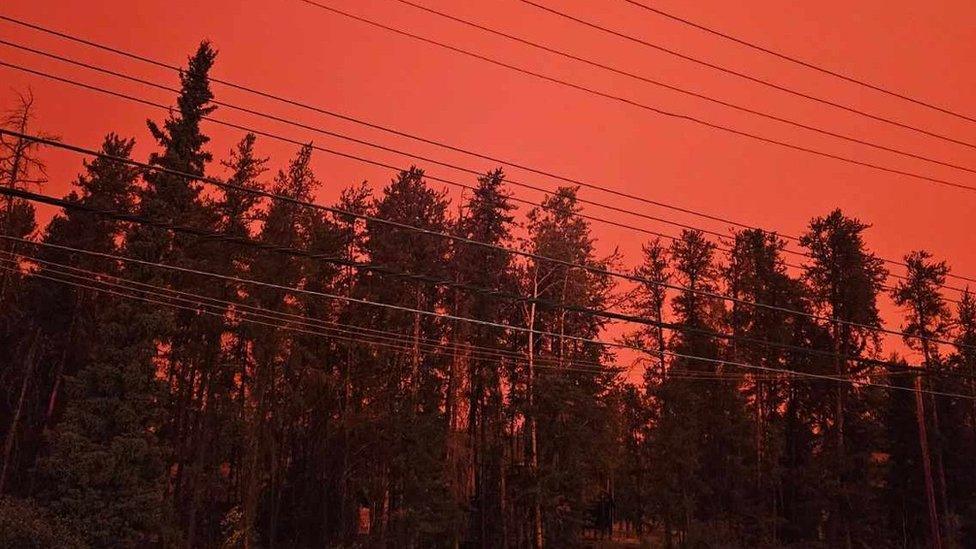
The sky outside Michel Labine's home in Fort Smith, Northwest Territories, just before he and his family evacuated out of town to safety
The Northwest Territories saw its hottest temperature on record this July, reaching 37.4C in the northern community of Fort Good Hope.
Wildfires are also burning in British Columbia, where several heat warnings are in effect this week due to record-high temperatures.
Scientists say climate change increases the risk of the hot, dry weather that is likely to fuel wildfires.
Extreme and long-lasting heat draws more and more moisture out of the ground and vegetation.
The world has already warmed by about 1.1C since the industrial era began and temperatures will keep rising unless governments around the world make steep cuts to emissions.
Watch: A dramatic helicopter rescue for three hikers trapped by wildfire in Canada
- Published29 June 2023
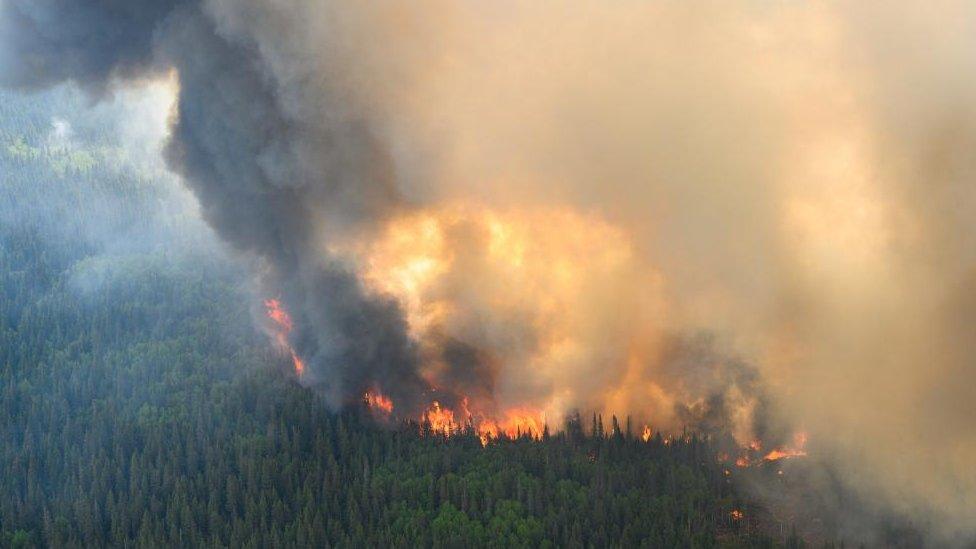
- Published11 June 2023
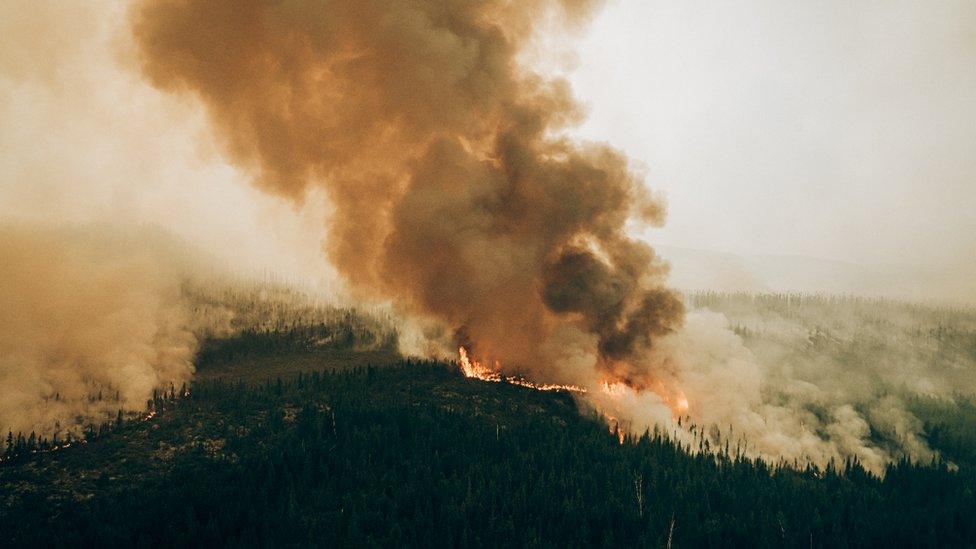
- Published12 May 2023
